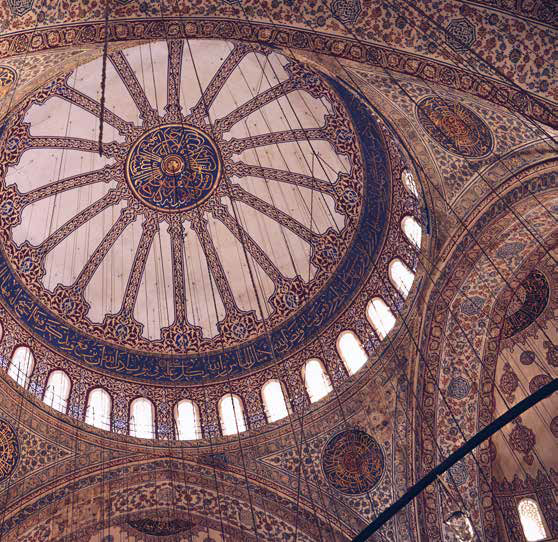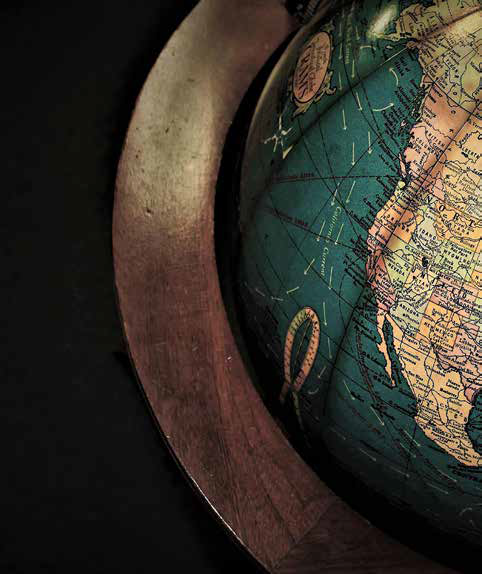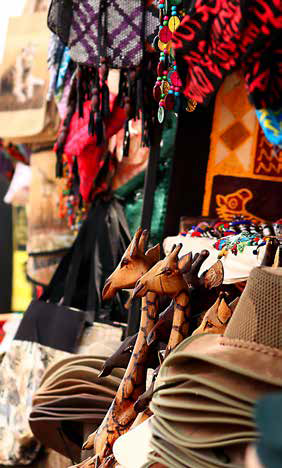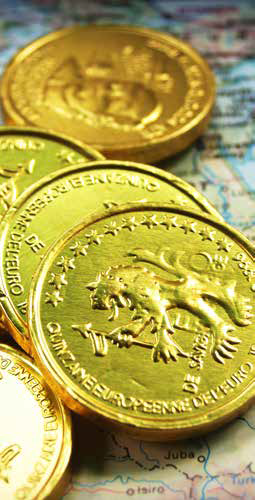In 2019, Gambia will be hosting the Organization of Islamic Cooperation (OIC) Summit. Currently, 57 Muslim countries are registered with the OIC, where membership stretches across four continents and form an essential aorta for international trade via meaningful land and maritime presence. With the global population share of more than 22%, OIC countries have 70% of the world’s energy resources and 40% of the global raw materials.
Therefore, the concept of building one ummah can be an extremely useful tool for the transformation of Muslim communities around the world and maximise the leverage on the numerous bargaining chips possessed by the Muslim states collectively. Below is the inspiring preamble of the OIC Charter:
- Convinced that their common belief constitutes a strong factor for rapprochement and solidarity among Islamic people;
- Resolved to preserve Islamic spiritual, ethical, social and economic values, which will remain one of the important factors of achieving progress for mankind;
- Reaffirming their commitment to the United Nations Charter and fundamental human rights, the purposes and principles of which provide the basis for fruitful cooperation among all people; Determined to consolidate the bonds of the prevail- ing brotherly and spiritual friendship among their people, and to protect their freedom, and the common legacy of their civilisation resting particularly on the principles of justice, tolerance and non-discrimination;
- In their endeavour to enhance human well-being, progress and freedom everywhere and resolved to unite their efforts in order to secure universal peace which ensures security, freedom and justice for their people and all people throughout the world.

“THE CONCEPT OF BUILDING ONE UMMAH CAN BE AN EX- TREMELY USE- FUL TOOL FOR THE TRANS- FORMATION OF MUSLIM COMMUNITIES AROUND THE WORLD AND MAXIMISE THE LEVERAGE ON THE NUMER- OUS BARGAINING CHIPS POSSESSED BY THE MUSLIM STATES COL- LECTIVELY.”
The OIC Summit is the highest decision-making organ and the flagship meeting of the Monarchs and political leaders of the Muslim world. Thus, it is not only a great honour for any Muslim state to host the kings, emirs, leaders and representatives of the largest religious community and the fastest-growing religion in the world. It is also an excellent opportunity to have an infusion of resources into the economy of a member state via a pipeline of projects that can im- prove the quality of life of the less fortunate members of the Islamic ummah. Islam is pre-eminently a religion of fidelity and solidarity and wherever the Summit is held there is a massive injection of solidarity funds to develop the facilities for a successful hosting.
Senegal has hosted the Summit twice with the first one held in 1991. Some have observed that the excellent urban infrastructure of roads, bridges and tunnels dotted around Dakar are the visible legacies of the second Summit held in Dakar in 2008. Senegal and Gambia have a lot in common both culturally and socially, including a shared Islamic heritage of the Maliki School of Islamic jurisprudence. Gambia and Senegal also share some unflattering dataset – approximately 40% of people living in extreme poverty worldwide live in member states of the OIC. In 21 of those 57 countries, less than half of the population has access to adequate sanitation. Four percent of infants born in these countries die before they reach the age of five.
Simply put, despite great potential, many OIC countries have struggled to achieve broad-based development. For many African OIC countries, the infamous “resource curse” is at work; in others, weak leadership and failed institutions are to blame. It does not help that the vast majority (some 71%) of the 125 million people affected by conflicts and natural disasters reside in OIC countries. Instability places enormous strain on national budgets.
Against this background and given the levels of poverty, unemployment and deprivation among the Muslim peoples of the Sahel, governments all over the region are reviewing and recasting their development models and devising alternative means to improve the livelihoods and living standards of the majority of their citizens.
INTEGRATION OF AFRICA INTO THE GLOBAL ECONOMY
In this context, Gambia has to re-examine its own model of development and should look to its Islamic heritage as an important source of organisational forms and institutions for empowering the people and communities in addressing their development needs.
Fortunately, countries like the Gambia have options. In particular, capital that has accumulated in some of the OIC countries’ financial systems could play an important role in helping them to meet their development goals – especially if Islamic finance is used to its full potential.
However, the present global economy is dominated by a Eurocentric worldview inspired by Judea-Christian values and ethics, and made up of the politically and militarily powerful countries of Europe and the Americas-countries that initially gained much of their pre-eminence from the exploitation of Afri- cans (and other non-Western people).
As slaves or colonial subjects, Africa’s labour and resources (usually obtained directly or indirectly by coercion) provided many of the low-cost raw materials for Western factories and the affluent consumer lifestyles that the developed world takes for granted today. The influence of the West and Western culture and value systems has been the major modernisation force in the Sahel. By responding to the promise of acquiring Western affluence, Africans across the continent, to varying degrees; are being integrated into the worldwide network of trade and productive relationships sometimes called “the global capitalist economy.”
“DESPITE GREAT POTENTIAL, MANY OIC COUNTRIES HAVE STRUGGLED TO ACHIEVE BROAD-BASED DEVELOPMENT.”

Since the end of colonialism; African raw materials, cash crops, minerals, and fuels have continued to be transported overseas, while Western manufactured goods, technology, financial capital, and western systems and lifestyles are imported into Africa.
So far, the “integration” of Africa into the global economy has largely gone badly for most countries on the continent as the cost of Western imports compared to the prices of African exports have typically been negative to Africa; leaving almost all countries in debt, their economies a shambles, and living standards spiralling downward. Only a minority of Africans have been able to acquire more than a few tokens of the promised good life that the West symbolizes.
GAMBIA HISTORY
Gambia gained its independence from the UK in 1965, after being a separate British Colony for less than a hundred years. Even though the presence of European powers in this region dated back to the mid- 15th century, first by Portugal who had dominated overseas trade at the time, it is important to note here that the presence and importance of Islam in the lives of the people in this region predates the Europeans by at least 500 years.
By the 11th century or at the latest the 12th century, the rulers of kingdoms such as Takrur, a monarchy centred between Gambia and the Senegal Rivers and just to the north, ancient Mali and Ghana; had converted to Islam and had appointed Muslims who were literate in the Arabic language as courtiers to the Sahel region.
Mansa Musa made his famous pilgrimage to Makkah between 1324 and 1325. The Emperor’s entourage reportedly included 60,000 men; including 12,000 slaves who each carried 1.8 kg (4 lb) of gold bars and heralds dressed in silks who bore gold staffs, organized horses, and handled bags. Musa provided all necessities for the procession, feeding the entire company of men and animals. Those animals included 80 camels which each carried 23–136 kg (50–300 lb) of gold dust. Musa gave the gold to the poor he met along his route. Musa not only gave to the cities he passed on the way to Mecca, including Cairo and Medina, but also traded gold for souvenirs. It was reported that he built a mosque every Friday.
The Emperor of Mali was reported to be carrying so much gold that the price of gold was depressed throughout the Maghreb and in modern historiography, Mansa Musa has been described as the richest man to have ever lived. The relevance of history in the development of any nation or people cannot be over-emphasised. And the role such a history plays in shaping and influencing the future prosperity and happiness of succeeding generations have been overlooked by most scholars of economic science.

Our indigenous institutions, mechanisms of cooperation and solidarity within a socio-economic framework have been either destroyed or jettisoned by colonialism and neo-colonial educational systems.
Adam Smith, who is credited and celebrated as the father of modern economics and his book “the wealth of nations” is treated to this day as the gospel and foundation stone of the modern liberal economic framework, which was bequeathed to our nation at independence. Smith lived through the transatlantic slave trade without once querying the inhumanity of trading in human beings.
“GAMBIA GAINED ITS IN- DEPENDENCE FROM THE UK IN 1965, AFTER BEING A SEPA- RATE BRITISH COLONY FOR LESS THAN A HUNDRED YEARS”
“TODAY, THE TOTAL VALUE OF ASSETS IN ISLAMIC FINANCIAL INSTRUMENTS ALONE STANDS AT AN ESTI- MATED US$2.4 TRILLION “
Many scholars agreed on the fact that Ibn Khaldun, the Tunisian historian and Islamic scholar had outlined an early, possibly even the earliest example of the political economy. Ibn Khaldun described the economy as being composed of value-adding processes; that is, labour and skill is added to techniques and crafts and the product is sold at a higher value. He also made the distinction between “profit” and “sustenance”, in modern political economy terms, surplus and that is required for the reproduction of classes respectively.
Against this background, in a predominantly Muslim nation it makes eminent sense to explore alternative paths to the development of our people. Our Islamic heritage has provided an economic framework based on equity, solidarity, fairness and social justice.
What is urgently necessary is to unlock the existing knowledge, mainstream and adapt it to our present needs and realities. With a 95% Muslim population, Gambia really ought to benefit more from the Islamic economy for its developmental aspirations.
ISLAMIC FINANCE TODAY
Today, the total value of assets in Islamic financial instruments alone stands at an estimated US$2.4 trillion. The major financial centres of London, Hong Kong and Singapore have joined the market leader Malaysia in issuing sukuk and other Islamic economic products. This growth is being fuelled not only through the world’s 1.6 billion Muslims but also by consumers of other faiths who see Shari’a-compliant products as offering a credible alternative for ethical investment that is, environmentally friendly and socially responsible.
Interest in Islamic economic products from differ- ing faiths is not restricted to end-product consumption. Finance industry personnel and economists from many different religions and socio-economic backgrounds have also shown an ever-increasing professional interest in the Islamic economy. Despite its rapid growth and acceptance, Islamic economic assets globally only constitute slightly over 1% of banking and financial assets globally. This surprisingly insignificant figure can only be understood from an historical perspective.
Unlike conventional finance which has been evolving over four hundred years, contemporary Islamic finance is of recent vintage. The use of Islamic finance which was widespread at one time, its growth and development was interrupted with the passing of the classical age of Islam and the reign of the Righteous Caliphs.
The Renaissance and Reformation in Europe, the Industrial Revolution, the collapse of the Ottoman Empire and the dividing up of the territories of the world by the European powers further diminished the prospects for Islamic economics as result it was largely forgotten. Following the collapse of the Ottoman Empire and end of the 1st World War, the Muslim ummaah was divided into Kingdoms, Emirates and Sultanates.
This was how the Arabian Peninsula was turned into Saudi Arabia and Yemen and the rest of the Muslim states in the Middle East were similarly created under European designs and supervision. It was not until the latter part of the 20th century that modern ideas about the Islamic economy were revived. As a result of the extraordinary wealth generated by the discovery of oil and gas resources in predominantly Muslim states.
However, the present insignificant proportion of Islamic economic assets in the global financial system only serves to highlight the fact that the growth potential for Islamic economy in poor and marginal economies like Gambia is enormous. The growth of the global Muslim population, estimated at 1.84% annually, and the internationalisation of the Islamic economy are key factors to consider in this respect.
The emergence of Asia and the Middle East as economic powerhouses and the shift of wealth from the West to these regions are other important factors. The growing research outputs are progressively cementing the scientific foundations on which a robust legal and regulatory framework will be built.
MAINSTREAMING ISLAMIC FINANCE IN GAM- BIA
Gambia has abundant human and natural resources but a limited research infrastructure both hard and soft in agriculture and industry, as agricultural production remains predominantly rain-fed. About three-quarters of the population depend on the agricultural sector for its livelihood and the sector pro- vides for about one-quarter of GDP.

The agricultural sector has untapped potential – less than half of the arable land is cultivated. Investments from the Islamic economy can be a game changer in this regard. Furthermore, youth unemployment and underemployment remain serious challenges for the holistic development of the Gambia.
In the last 50 years of relying on the Bretton Woods Economic Development Models, Gambia and most of the Sahel countries have sunken into a debt black-hole, which is used to justify the imposition of conditionalities and other structural adjustment pro- grammes by the IMF and World Bank. Conventional banking and finance depends largely on the savings of the people which is mobilized into investments for housing and infrastructure development. Gambia with about 7% national savings deposit cannot mobilise the resources required for investment and transformation of the productive sectors of the economy.
However, it should be noted that at grassroots lev- els, groups and communities have developed a saving culture through the informal use of “OSUSUs” where the members agree to contribute a specific amount every week or month, typically for a year and members take turns withdrawig the total amount contributed by the group.
Therefore, a framework has been invented by the people out of necessity. But what remains is to develop the principles to meet certain standards of trust and risk management and dispute settlement mechanism that is efficient and effective. More formally, through the establishment of cooperative credit unions that almost all Public Enterprises in Gambia operate and have had a significant influence in personal savings for the working class. With some investments from the Islamic economy such institutions can become transformational and their activities can create value, wealth, employment and shared prosperity across the nation.
The Central Bank of Gambia (CBG) is evolving the requisite architecture for the Islamic economy to take root and flourish in Gambia. The CBG has the mandate to license Islamic financial institutions and Bank itself is the sole issuer of Sukuk Salaam. Microfinance Institutions and other Non-Bank Financial Institutions are formally recognised in the financial industry of Gambia, but sourcing finance to fulfil their mandates continues to be a major huddle for these hybrid institutions. Using Islamic economic models will be more in keeping with visions and aspirations of such institutions.

Islamic finance has important advantages over conventional financial products. Its prohibition of interest and requirement that investments be linked to the real economy, together with its approach to profit- and loss-sharing, add stability to the financial sector. Islamic finance also can enhance financial inclusion, as it incorporates people who, for cultural or religious reasons, are excluded from the traditional financial system. This is perhaps one reason why Islamic finance has been expanding at 10-12% per year over the last decade or so.
If Islamic finance is to play its full part in revitalizing and diversifying the economies of the OIC countries, governments will need to undertake important reforms. Topping the list is the need for stronger legal institutions that protect property rights and ensure that contracts are enforced. If people are to have full confidence in Islamic financial products, moreover, the industry will need to be standardized and regulated. National tax policies will also need to be tweaked, to prevent discrimination against Islamic financial instruments.
The Islamic Development Bank Group is working with partners to help realize these reforms. Furthermore, World Bank Group has introduced investment projects that use Islamic financing across the Muslim World. The World Bank Treasury has issued a variety of Islamic financial instruments, including two Sukuk, which have raised US$700 million. Similarly, the World Bank’s private-sector arm, the International Financial Corporation, has established the IFC Sukuk Company, which issued US$100 million in trust certificates in 2015.
The World Bank’s political risk insurance arm, the Multilateral Investment Guarantee Agency (MIGA), has provided a US$427 million Shari’a-compliant in-vestment guarantee for an infrastructure project in Djibouti and US$450 million in political risk insurance for a telecommunications investment in Indonesia. And, together with the Islamic Development Bank Group; the United Nations, and other donors, the World Bank has created a joint facility to assist the countries hardest hit by instability with concessional financing, which includes an Islamic finance instrument for Lebanon and Jordan to help them bear the costs of supporting refugees from Syria.
New technology can play a vital role in making financial systems more inclusive, particularly for groups that face greater barriers to access. For example, some 90% of Syrian refugees have access to smartphones, through which they could access financial services. Efforts must be made to ensure that we make the most of such technologies.
Finally, there are humanitarian objectives. And, indeed, work is already underway to address how waqf (charitable endowments), zakat (the obligatory alms tax), and a variety of Islamic financial instruments can be channelled effectively and efficiently to meet humanitarian needs.
CONCLUSION
Islamic finance can help deliver much-needed solutions to the Muslim world’s development challenges. Its ability to enhance financial stability, promote financial inclusion, and drive sustainable development could spark transformative change across the region. To realize this potential, Islamic finance, no less than its conventional counterpart, needs an appropriate enabling environment, one characterized by a level playing field, an adequate regulatory framework, and effective partnerships.



